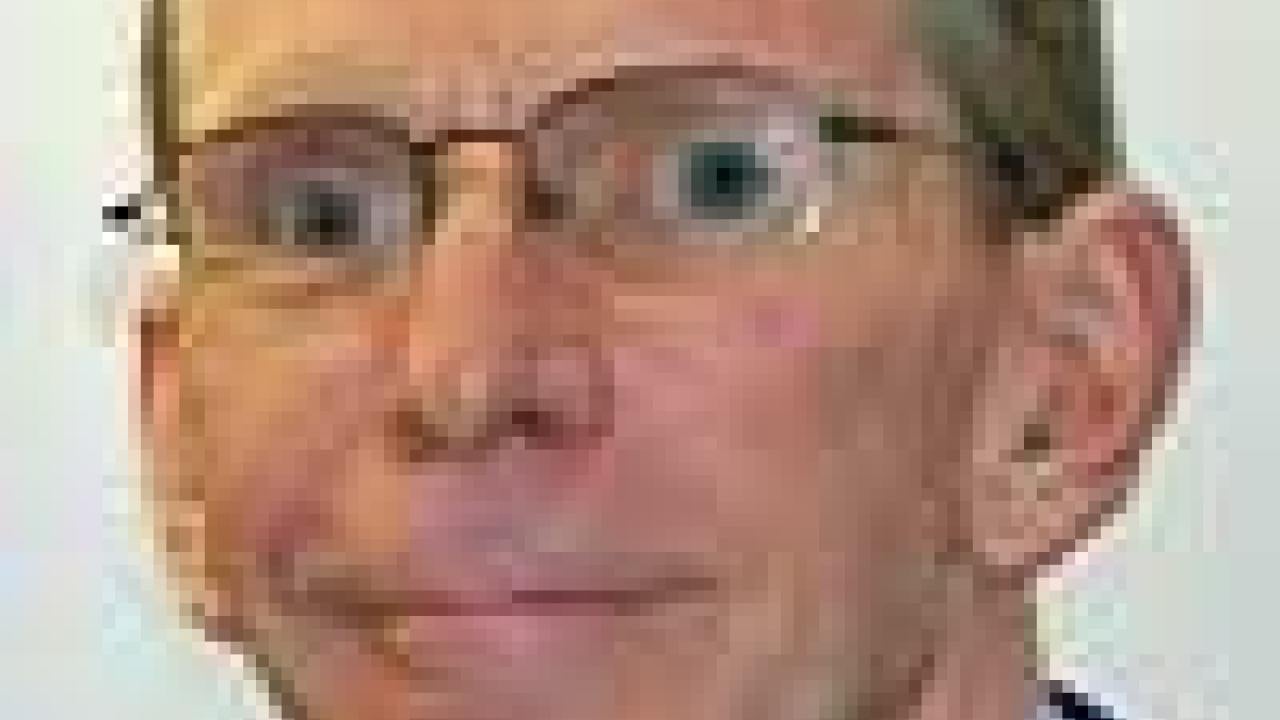Ronald Baskin, professor emeritus of molecular and cellular biology, firmly believed that it is never too early to ignite a love for science in a young mind. For the highly respected University of California, Davis, biophysicist, that was not merely a philosophy; it was his life story.
An authority on the molecular basis of muscle contraction, Baskin, 74, died July 3 in his Davis home of Parkinson’s disease. A celebration of his life will be held at 2 p.m. Saturday, July 31, at the Episcopal Church of St. Martin on Hawthorne Lane in Davis.
His family recalls that he was intrigued with science from an early age, making a communications system out of spare parts when just in the fourth grade and setting up his own home chemistry lab as a teenager. In high school, he bridged the fields of biology and physics with an experiment that exposed plates of bacteria to an electrical field generated by a Tesla coil.
“Ron was keenly interested in the physical aspects of biological processes,” said Baskin’s colleague Stephen Kowalczykowski, distinguished professor of microbiology. “He had a talent for building complex instrumentation that permitted very sophisticated analysis of biological molecules, a talent that ultimately enabled him and his collaborators to visualize individual molecules of proteins and DNA in action.”
In 2001, Baskin and colleagues caught the attention of the research community when they released a brief video that captured images at the microscopic level of an enzyme “unzipping” a strand of DNA. The techniques used in preparing the video are important to research aimed at repairing DNA in patients with genetic illnesses.
Born Nov. 25, 1935, in Joliet, Ill., he attended elementary school on the south side of Chicago and later moved with his family to Los Angeles. He graduated in 1953 from Dorsey High School in Los Angeles. It was at Dorsey that he met Lydia Lendl, who eventually would become his high school sweetheart and wife of 52 years.
The first in his family to attend college, Baskin earned three degrees from UCLA: a bachelor’s in biophysics in 1957, a master’s in physiology in 1959 and a doctorate in zoology in 1960. While at UCLA, he built one of the earliest 3-D models of DNA — the spiral-staircase-shaped molecule that carries life’s genetic code.
After graduate school, he was hired as an assistant professor at Rensselaer Polytechnic University in Troy, NY, where he served from 1961 to 1964. He joined the UC Davis zoology department faculty in 1964.
At UC Davis, he taught courses in molecular and cellular biology, and established a research program focused on developing a better understanding of the molecular basis of muscle contraction. In relation to this work, he also studied the function of motor proteins, which play a critical role in muscle contraction.
Although fundamental in nature, his research led to a very practical application in human medicine. In 1985, Baskin and a colleague at UC San Diego designed and patented a laser-based device called a “myometer,” which accurately adjusted muscles to the appropriate resting length for surgical reattachment. The device was used by surgeons when repairing muscles that had been detached from their tendons due to accidental injury or surgery.
“Ron was always excited by new scientific discovery and was interested in the education and professional advancement of everyone who worked with him,” Kowalczykowski said. “He was a serious, responsible and dedicated individual with a cooperative, positive attitude -- an ideal collaborator and colleague.”
Robert Grey, former UC Davis provost and executive vice chancellor noted, “Ron’s passion for science was evident to all who knew him, especially the graduate students who had the good fortune to work in his laboratory.
“His many contributions to biophysics and cell biology will surely endure,” Grey said. “And his administrative service, which began early in his career, contributed to the development of UC Davis as a world-class university.”
During his career, Baskin guided 15 men and women toward their doctoral degrees and mentored 12 postdoctoral fellows in his laboratory.
He chaired UC Davis’ zoology department from 1971 to 1979 and the graduate group in zoology from 1971 to 1978. He also helped establish UC Davis’ biophysics department and chaired the graduate group in biophysics from 1983 to 1986.
In addition, he served as associate dean of the College of Letters and Sciences and as the first associate dean of the Division of Biological Sciences.
Intent on encouraging future scientists, the Baskins in 2006 established an endowment to support the Ronald and Lydia Baskin Research Award. That scholarship award annually recognizes one graduating senior for excellence in research in the biological sciences.
Baskin also carried his passion for science into the community. While chairing the zoology department, he worked with the Davis Science Center (now Explorit) to sponsor the Science and Math Conference for high school students.
Away from his campus laboratory, he enjoyed family vacations and spent many hours designing and overseeing construction of the family’s Davis home, as well as a vacation home in Lake Tahoe.
In addition to his wife, Lydia, he is survived by his brother, Kenneth Baskin, of Florida; two sons, James Baskin of Washington state and Thomas Baskin of Wisconsin; and five grandchildren.
The family prefers that any memorial donations be made to the Michael J. Fox Foundation for Parkinson’s Research.
Media Resources
Pat Bailey, Research news (emphasis: agricultural and nutritional sciences, and veterinary medicine), 530-219-9640, pjbailey@ucdavis.edu
